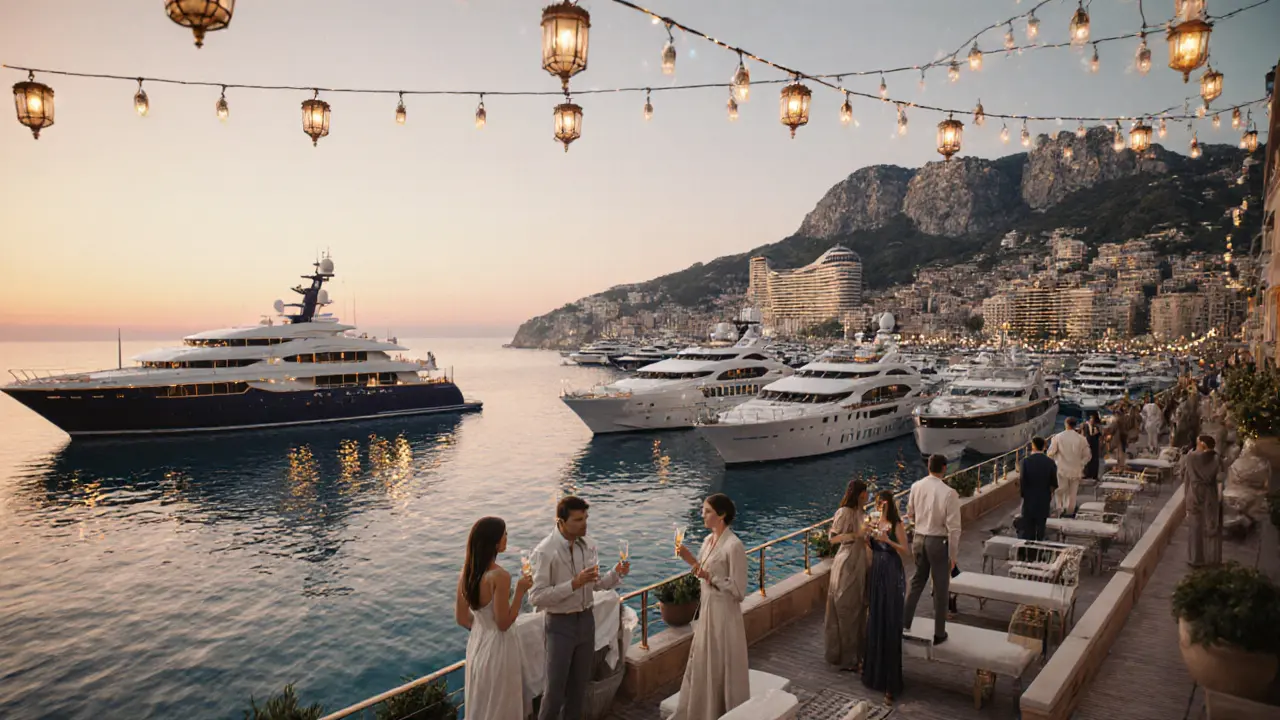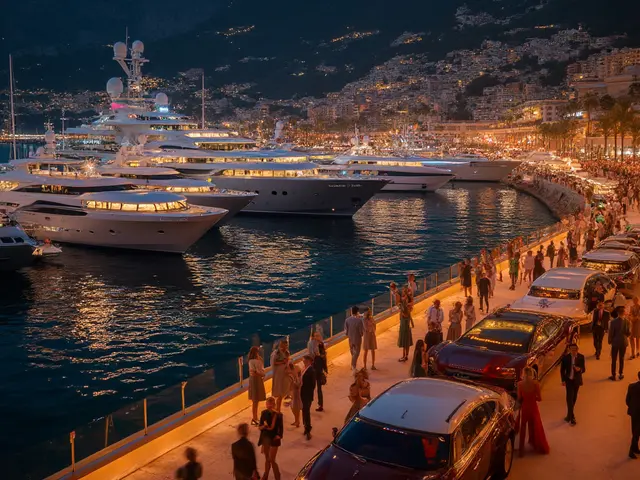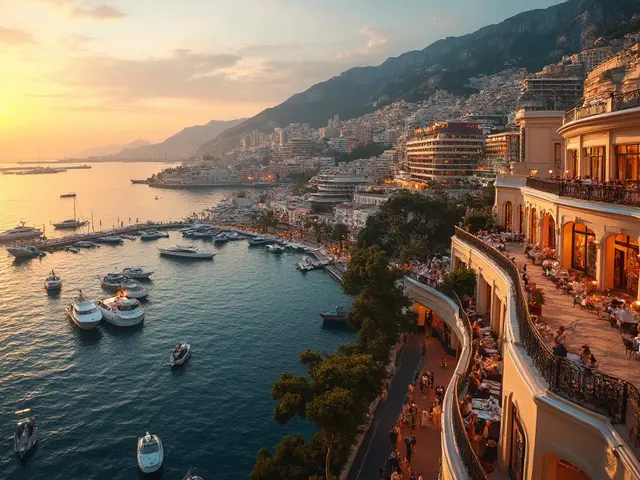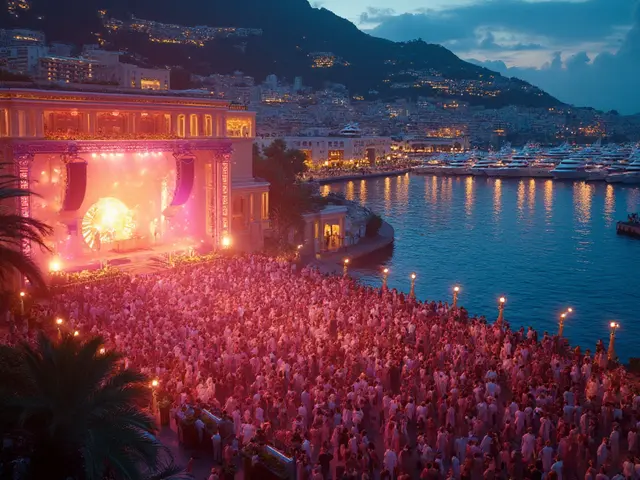The Monte Carlo Summer Festival isn’t just another event on the calendar. It’s the moment when the Mediterranean air turns thick with champagne bubbles, silk dresses catch the last golden light of sunset, and yachts glow like floating palaces along the harbor. For three weeks each July, Monaco becomes a stage where wealth, art, and midnight energy collide - not in a flashy, over-the-top way, but in the quiet, confident rhythm of those who’ve mastered the art of living well.
Where the Elite Unwind After the Grand Prix
After the roar of the Monaco Grand Prix fades in late May, the island doesn’t slow down - it shifts gears. The Summer Festival picks up where the race left off, but instead of engines, it’s orchestras, jazz trios, and live electronica that fill the air. The Grimaldi Forum, once packed with pit crews and team principals, now hosts world-class ballet performances and avant-garde film screenings. The same balconies that overlooked F1 cars now overlook violinists playing Debussy under strings of lanterns.
It’s not about who you know - it’s about what you’ve seen. A Russian oligarch might sip a 1947 Château Mouton Rothschild at the opening gala, while a Parisian designer watches a midnight DJ set on the terrace of the Hôtel de Paris. No one is forced to mingle. No one needs to prove anything. That’s the unspoken rule here: presence is enough.
The Nightlife That Doesn’t Try Too Hard
Forget neon signs and bouncers with headsets. The best spots during the festival don’t even have signs. The entrance to Le Louis XV - Alain Ducasse’s private rooftop lounge is hidden behind a bookshelf in the hotel’s library. You need a reservation, a name on the list, and the right time - usually after 11 p.m., when the last guest from the opera arrives.
At Le Bar Américain, the bartender knows your drink before you sit down. The music is always just loud enough to feel alive, but never loud enough to shout over. The crowd? Mostly Europeans with no last names you’d recognize, but plenty of surnames that appear on Forbes lists. They don’t post photos. They don’t need to. Their presence is the currency.
There’s also Club 55 on the beach, where the sand is raked daily, the towels are monogrammed, and the cocktails come with edible gold leaf. It’s not the most expensive place - but it’s the most carefully curated. You won’t find tourists here. You’ll find people who’ve been coming for 20 years, and their children who now come with their own friends.
Art, Music, and the Sound of Silence
The festival’s heart isn’t in the clubs - it’s in the quiet moments. The open-air concert at Place du Casino on a Wednesday night draws no crowds, just a few hundred people seated on white chairs under a canopy of stars. The orchestra plays Ravel’s Daphnis et Chloé - the same piece that premiered here in 1912. No one claps loudly. No one stands up. The silence after the final note lasts longer than the music itself.
At the Monaco Film Festival, screenings happen in the old opera house, now restored with velvet seats and gilded moldings. The films aren’t blockbusters. They’re French New Wave rediscoveries, Iranian documentaries, and debut shorts from directors who’ve never been interviewed. The audience includes directors from Cannes, curators from MoMA, and collectors who fund indie films just to say they did.
There’s a reason these events aren’t advertised on Instagram. They’re not meant for mass appeal. They’re meant to be experienced - quietly, intentionally, and without distraction.
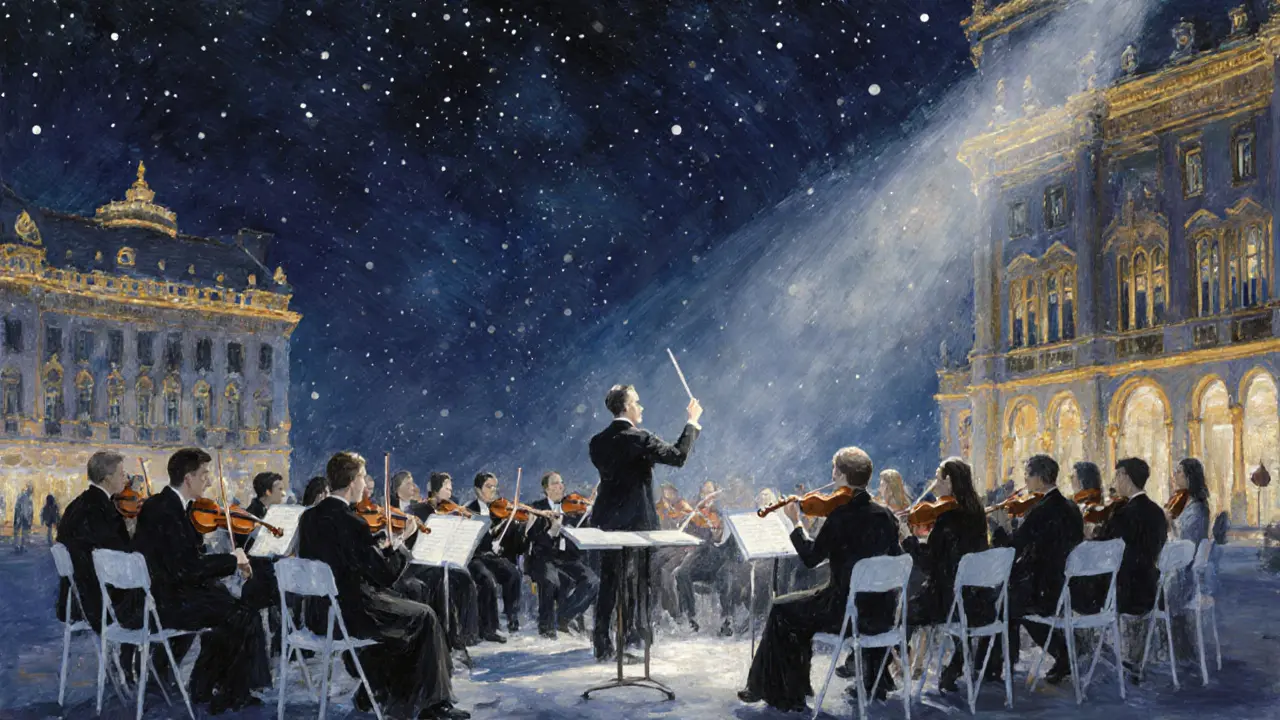
The Yachts, the Jewels, and the Unspoken Rules
Every night, more than 80 superyachts anchor off the Port Hercules. Some are over 100 meters long. Some belong to royalty. Others belong to tech founders who sold their companies for billions and now treat Monaco like a summer cabin.
You’ll see diamonds on wrists, but never on necklaces - the women here know that too much sparkle looks like insecurity. The men wear linen suits, no ties, and watches that cost more than a luxury apartment. But no one talks about the price. No one asks. The value isn’t in the object - it’s in the fact that it’s worn without fanfare.
There’s a code: if you’re invited to a yacht party, you don’t show up empty-handed. A bottle of rare wine, a limited-edition book, a painting from a young artist - it doesn’t matter what, as long as it’s thoughtful. Gifts are never wrapped. They’re handed over with a nod. The gesture is the point.
Why This Festival Lasts - And Why It Won’t Change
Other cities try to copy it. Dubai throws glittery beach parties. Saint-Tropez brings in DJs with six-figure fees. But none of them capture the essence: restraint.
The Monte Carlo Summer Festival doesn’t need to be loud because it’s already powerful. It doesn’t need influencers because the people here are the influencers. It doesn’t need tickets because access is earned, not bought. The real currency? Reputation. History. Taste.
There’s no VIP list you can pay for. There’s no app to download. You don’t get in by knowing someone - you get in by being someone who understands what silence, elegance, and time are worth.
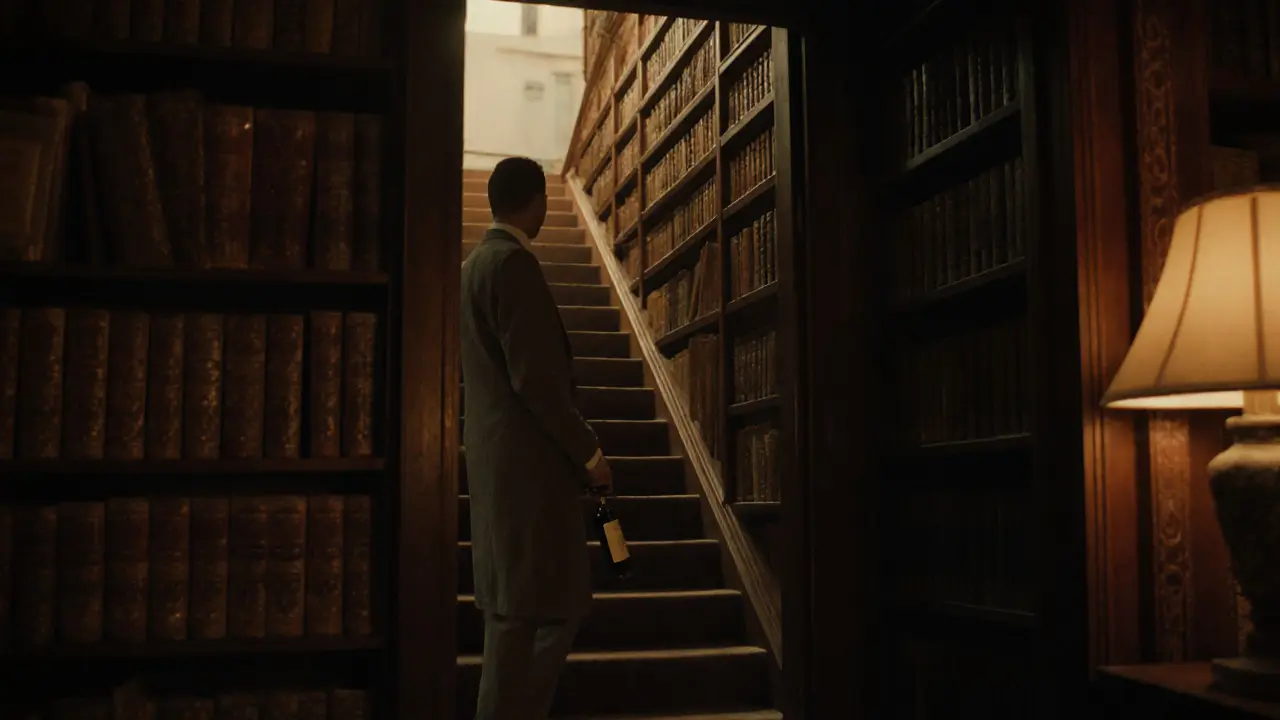
What to Expect If You Go
- Arrive in July - the festival runs from mid-July to early August, with peak nights on weekends.
- Dress code: Evening wear, but never costume. Linen, silk, tailored cotton. No logos. No sneakers.
- Reservations are mandatory for all events. Start planning three months ahead.
- Transportation: Walk or take the hotel shuttle. Parking is scarce, and taxis are rarely used.
- Don’t expect selfies. Cameras are discouraged at most venues. The experience is meant to be lived, not documented.
Where to Stay
There are no hotels that are "good enough." You either stay at the Hôtel de Paris, the Fairmont Monte Carlo, or you don’t stay at all. Rooms fill up a year in advance. Some guests book suites for the entire month. Others rent private villas in La Turbie, just outside the city, and commute in.
Pro tip: If you can’t get a room, try the Monte Carlo Beach Hotel. It’s slightly less formal, has its own private beach, and still hosts festival events. It’s the only place where you might actually see someone dancing barefoot in the sand after midnight.
What This Festival Isn’t
It’s not a party. It’s not a festival in the traditional sense. There are no fireworks, no parades, no merch booths. It’s not for people who want to be seen - it’s for people who want to feel something real.
If you’re looking for loud music, cheap drinks, or Instagram backdrops, you’ll leave disappointed. But if you’ve ever wanted to sit under the stars with a glass of champagne and hear a string quartet play a piece no one else knows - then this is the place you’ve been searching for.
Is the Monte Carlo Summer Festival open to the public?
Yes - but access is controlled. Most events require an invitation, reservation, or membership. Some outdoor concerts and film screenings are open to the public, but seating is limited. You can’t just show up. You need to plan ahead and often have a connection or recommendation to secure entry.
How much does it cost to attend the Monte Carlo Summer Festival?
There’s no single price. Some events are free, like open-air concerts on the harborfront. Others cost €500-€2,000 for a single evening, especially private dinners or yacht receptions. VIP access to the Grimaldi Forum or exclusive club nights can run over €5,000. Most attendees are invited by hosts who cover the cost - it’s rare for someone to pay out of pocket unless they’re a patron of the arts.
Can I visit without knowing anyone in Monaco?
It’s difficult, but not impossible. Your best bet is to book through a luxury travel concierge who has relationships with event organizers. Hotels like the Hôtel de Paris can sometimes secure access to select events for their guests. You’ll need to show proof of means and intent - no one is turned away for being unknown, but you’ll need to prove you belong in that world, not just want to visit it.
Is the Monte Carlo Summer Festival family-friendly?
Some parts are. The film screenings and classical concerts are suitable for older children and teens. But most evening events - especially the yacht parties and club nights - are adults-only. There are no playgrounds, no kid menus, and no babysitting services. If you’re bringing children, plan for daytime activities like the botanical gardens or the Oceanographic Museum.
What’s the best way to experience the festival without spending a fortune?
Focus on the public events. The open-air concerts at Place du Casino and the outdoor film screenings at the Port Hercule are free and open to all. Arrive early for good seats. Walk along the harbor after midnight - the lights on the yachts, the sound of the waves, and the distant music are all part of the experience. You don’t need a ticket to feel the magic.

